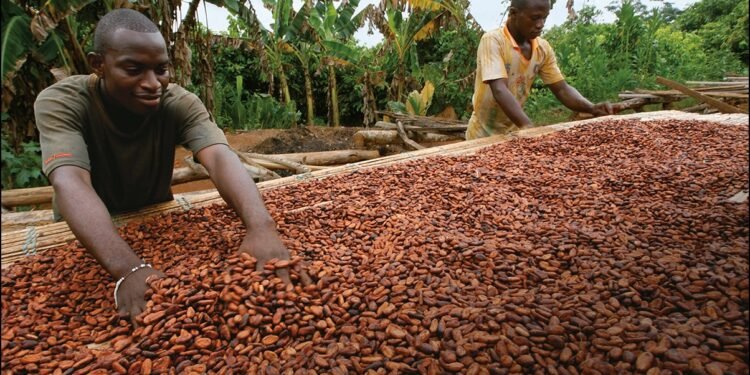Government has revealed that one of its flagship prorgammes, the Planting for Food and Jobs (PFJ) has led significantly to increase in crop yields for major food staples in the country.
Addressing parliament today, finance minister, Ken Ofori-Atta, noted that the Planting for Food and Jobs has brought substantial improvements in Ghana’s agriculture sector. This, he explained, has resulted in increased food security, employment along agricultural value chains, and accessibility of raw materials for developing industries.
“The programme has directly contributed to increased crop yields for major food staples such as maize, rice, and soya by 135 percent, 67 percent and 18 percent respectively within the period.”
Ken Ofori-Ata
After a comprehensive review, Mr Ofori-Atta stated that government is finalizing PFJ Phase II to ensure a more efficient and targeted support for the agricultural sector. He expressed that the key elements of Phase II are Inputs Credit System, Storage and Distribution Infrastructure, Commodity Trading and Digitized Platform.
Touching on the GhanaCARES “OBAATAN PA” programme, Mr Ofori-Atta reported that efforts toward promoting commercial agriculture, building technological capability, and advancing digitalization under the GhanaCARES programme are on track. He recounted that last year, he indicated government was spearheading the Economic Enclaves Project (EEP) to establish “growth poles” in key locations including Kasunya (Greater Accra), Kumawu (Ashanti) and Banda (Oti Region).
The approach under the EEP, the finance minister underscored, is to provide agriculture infrastructure and land development support to our entrepreneurial youth and the formal private sector.
“To enhance production and value-addition in the enclaves, the provision of ancillary services such as housing, training facilities, irrigation canals, farm roads, and electricity have also commenced… It is gratifying to note that the domestic private sector has responded positively to the provision of these services. About ten medium and large-scale enterprises with experience in the commercial agriculture space have applied to play diverse roles, ranging from anchor farmers to machine and equipment services, in the EEP site in Kasunya.”
Ken Ofori-Atta
Acres of land in Sekyere Kumawu under development
Furthermore, Mr Ofori-Atta stated that in partnership with the National Service Scheme, about 20,000 acres of land in Sekyere Kumawu in the Ashanti region, is being developed to accelerate maize, tomato, groundnuts and animal production.
In light of this, he stated that government expects that by the end of 2023, the “EEP will have fully seeded 7,500-acres of rice”, on-boarded qualified private sector entrepreneurs as anchor farmers, embarked on value chain activities such as rice milling and packaging in Kasunya; and developed and seeded 1,500 acres of lands in Kumawu and Banda (Oti Region) respectively and also engaged private sector partners in these enclaves.
“With these efforts, we expect to gradually drive down the food component of inflation, create jobs for our youth, improve food security and reduce the volatility on the forex market.”
Ken Ofori-Atta
Touching on YouStart initiative by government, Mr Ofori-Atta explained that to equip participants with entrepreneurial skills, investment readiness tools as well as coaching and mentoring services under the initiative, 26,626 persons nationwide have received business advisory support services since its launch last year.
To this end, he assured government’s continued effort to work with Participating Financial Institutions, National Entrepreneurship and Innovation Programme (NEIP) and Ghana Enterprises Agency (GEA) to provide soft loans and managerial skills for the setting-up of youth-led enterprises.
On the National Entrepreneurship and Innovation Programme, the finance minister highlighted that with support from the Ghana Economic Transformation Project (GETP), government launched the Hubs Acceleration Grant Programme in April 2023.
“The programme has supported 30 Business and Innovation Hubs with grants to resource start-ups in communities nationwide. Each Hub has received up to $180,000 and is required to resource 20 start-ups. In the second half of the year, new Hubs will be supported to set up across the Country.”
Ken Ofori-Atta
READ ALSO: Government To Embark On Community Roads Improvement Programme To Increase Productivity






















